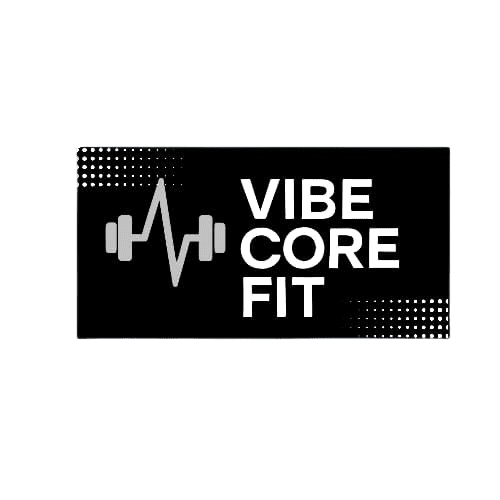

In order to gain weight in a healthy way, one must carefully combine proper diet, regimented exercise, enough sleep, and dependable routines. Healthy weight increase is focused on increasing your general strength, maintaining hormonal balance, and gaining muscle mass, as opposed to unhealthy weight gain, which can result in fat accumulation and health hazards.
This comprehensive book covers everything you need to know, regardless of your inherent thinness, your recovery from sickness, or your desire to bulk up.
Why Healthy Weight Gain Matters
The Risks of Unhealthy Weight Gain
Increased Fat Percentage
Uncontrolled calorie intake from junk food can spike fat levels and worsen insulin resistance.
Hormonal Imbalance
Refined sugar and trans fats may disturb testosterone and estrogen levels.
Poor Energy and Digestion
Nutrient-poor diets can leave you sluggish and bloated, despite weight gain.
Understanding Your Body Type
Body Types and How They Influence Weight Gain
Ectomorph
Lean by nature, with a quick metabolism, it is difficult to put on muscle or weight.
Mesomorph
athletic and muscular. gains muscle or weight rather easily.
Endomorph
quickly puts on weight and frequently battles excess fat.

Step-by-Step Blueprint to Gain Weight
Step 1 – Set Your Caloric Target
How to Calculate It
Maintenance Calories
Use a BMR calculator to estimate calories burned at rest. Add activity level to get Total Daily Energy Expenditure (TDEE).
Calorie Surplus
Add +500 to +700 kcal daily to begin gaining weight steadily.
Step 2 – Macronutrient Breakdown for Weight Gain
The Ideal Macro Split
Protein
1.6–2.2g per kg body weight/day
Carbohydrates
4–6g per kg/day – fuels muscle and calorie intake
Healthy Fats
0.8–1g per kg/day – boosts hormones and calorie density
Step 3 – Nutrition Plan for Lean Weight Gain
Sample 3000-Calorie Vegetarian Meal Plan
| Meal | Food |
|---|
| Breakfast | Oats with banana, almonds, honey, and full-fat milk |
| Snack 1 | Peanut butter sandwich + raisins |
| Lunch | Brown rice, lentils, paneer, olive oil salad |
| Snack 2 | Banana shake with whey protein |
| Dinner | Quinoa, tofu curry, ghee-topped roti |
| Before Bed | Greek yogurt with chia seeds and dates |
Add Variety with Non-Veg Options
Boiled eggs or omelets
Chicken curry or grilled chicken
Fish like salmon or tuna
Step 4 – Smart Grocery List
Essentials for Weight Gain Diet
Carbs
Rolled oats, brown rice, whole wheat bread
Sweet potatoes, pasta, bananas
Proteins
Eggs, paneer, tofu, lentils, whey protein, chickpeas
Fats
Almonds, peanuts, flax seeds, olive oil, ghee
Extras
Full-fat milk, yogurt, peanut butter, honey

Step 5 – Effective Workouts for Weight Gain
Training Is Non-Negotiable for Clean Bulk
Best Training Methods
Progressive overload: Increase weights weekly
Compound lifts: Focus on strength
Limit cardio: Only 10–15 minutes warm-up
Beginner Workout Plan (Week 1–4)
Day 1 – Upper Body
Bench Press: 3×10
Dumbbell Rows: 3×10
Shoulder Press: 3×10
Bicep Curls: 3×12
Day 2 – Lower Body
Squats: 3×12
Leg Press: 3×10
Calf Raises: 3×15
Day 3 – Rest/Light Walk
Day 4 – Push
Incline Dumbbell Press: 3×10
Overhead Press: 3×8
Triceps Dips: 3×12
Day 5 – Pull
Lat Pulldown: 3×12
Barbell Row: 3×10
Hammer Curl: 3×10
Intermediate Plan (Week 5–8)
Add:
Deadlifts
Bulgarian Split Squats
Weighted Pull-ups
Increase reps/sets
Step 6 – Rest, Recovery & Sleep
Sleep Deep, Grow Strong
Benefits of 8 Hours Sleep
Boosts growth hormone production
Reduces cortisol
Improves muscle recovery
Recovery Tips
Use magnesium, chamomile tea, or melatonin
No screens 1 hour before bed
Stretch post-workout
Step 7 – Gender-Specific Weight Gain Tips
For Men
Focus Areas
Chest, arms, shoulders
Add creatine and higher rep sets
For Women
Focus Areas
Glutes, thighs, and back
Use resistance bands + bodyweight + dumbbells
Include healthy fats for hormonal health
Step 8—Supplemen That Support Healthy Gains
Top Supplements (Natural & Safe)
Whey Protein
Easily digestible, high-quality protein
Post-workout or breakfast
Creatine Monohydrate
Increases strength and muscle water retention
5g/day with water
Omega-3
Anti-inflammatory
Boosts recovery
Mass Gainers
High-calorie shakes if food intake is low
BCAAs
For muscle retention during intense workouts
Important
Always consult a doctor before beginning supplements

Step 9 – Common Weight Gain Myths Busted
Myth #1 – “Just Eat More Junk Food”
Reality: You’ll gain fat, not muscle. Healthy weight gain needs structured meals.
Myth #2 – “Skinny People Can’t Build Muscle”
Reality: Anyone can build muscle with resistance training and right diet.
Myth #3 – “Supplements Will Do the Job”
Reality: Supplements support—not replace—real food and training.
Step 10 – Track and Adjust
Weekly Weight Gain Targets
Healthy Rate:
0.5–1 lb (0.25–0.5 kg) per week
Tools to Use:
Fitness App (MyFitnessPal)
Smart Weighing Scale
Progress Photos every week
Expert Tips and FAQs
Expert Tips
Add ghee or olive oil to dals and curries for extra calories
Never skip breakfast—most important meal for gainers
Carry snacks like nuts, protein bars, or fruit when traveling
Lift heavy and prioritize compound lifts
FAQs
Q1: Can I gain weight without gym?
A: Yes, by increasing food intake and doing bodyweight exercises, though muscle gain will be slower.
Q2: Can I gain healthy weight if I’m vegetarian?
A: Absolutely! Lentils, paneer, tofu, nuts, seeds, and whole grains are your best friends.
Q3: What if I stop gaining weight?
A: Recalculate your calorie needs every 2–3 weeks and adjust meals or snacks upward.
Q4: Is cardio bad while gaining weight?
A: Light cardio (10–20 mins, 2–3 times/week) is good for heart health but don’t overdo it.
Final Thoughts
Healthy weight gain is a slow, strategic, and rewarding journey. It’s not about stuffing yourself with junk food or skipping exercise. It’s about fueling your body, training with intention, recovering with care, and building sustainable habits.
Track your progress, celebrate every small win, and don’t give up if results take time. With the right approach, you can transform your body naturally and confidently.
